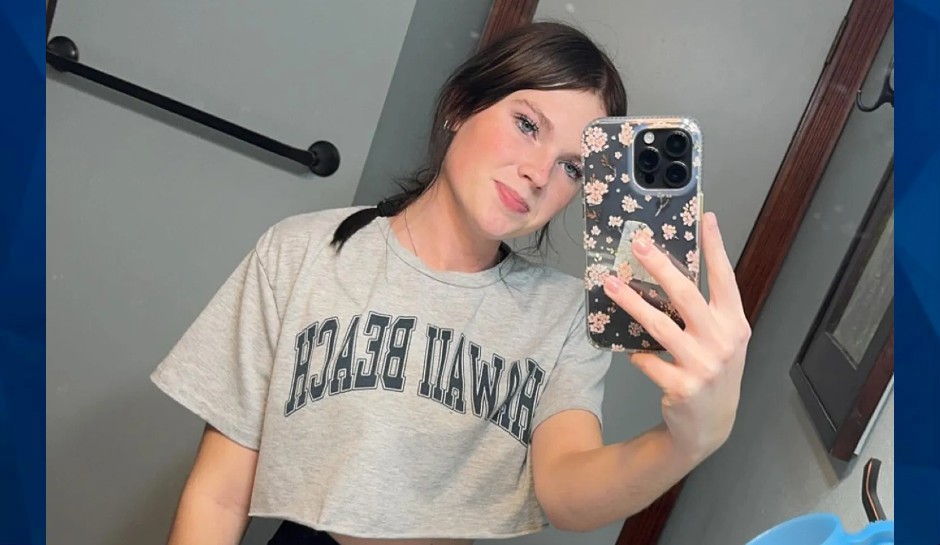Share this @internewscast.com
Authorities are investigating a disturbing case involving a 16-year-old boy, who is suspected of being involved in the death of his stepsister, Anna Kepner. Reports suggest that the teenager had an unusual fixation on Anna.
As previously covered by CrimeOnline, Anna’s lifeless body was found by a cabin steward around 11 a.m. on the Carnival Horizon cruise ship. The discovery prompted an unscheduled stop at Port Miami on November 8 for further investigation.
According to the Miami-Dade County Medical Examiner, Anna’s death occurred on November 7 while the vessel was near the northwest coast of Cuba.
Inside Edition has revealed insights from Steve Westin, who is the father of Anna’s former boyfriend. Westin alleged that the young suspect harbored an intense infatuation with Anna to an unsettling degree.
Westin shared that his son had informed him about the stepbrother’s persistent attempts to pursue Anna, which were reportedly accompanied by the alarming detail that he regularly carried a knife.
“She was scared of him because he always carried around a big knife,” Westin remarked, emphasizing the fear Anna felt towards her stepbrother.

During a FaceTime call, Anna’s ex, Joshua, reportedly saw the stepbrother enter her room and get on top of her.
FOX News Digital reports that Joshua said the incident happened at around 3 a.m., after Anna had fallen asleep while on the call.
“When I was on FaceTime with her, and she was lying down, and her brother tried to go on top of her,” the former boyfriend said at Anna’s celebration of life gathering in Titusville, according to Daily Mail.
“Anna was laying down and he walked in there and tried to get on top of her, but he got caught by me in the process of it.
“I was like, ‘What the hell are you doing in her room?’ Then he got scared and ran away. And I heard his footsteps running through the house because he got caught.”
Joshua reportedly said that Anna felt uncomfortable around her stepbrother.
“She was too scared to tell anybody. Because that one time that he said that if she said anything about getting on top of her he’d do something to her.
“She told me that she was uncomfortable with them [his step relatives] being at the house because she didn’t fully know who they were.”
Joshua reportedly added that Anna’s father had only met the suspect’s mother, Shauntel Hudson, “not even like a year ago,” and that Hudson had been “controlling over her.”
During an emergency custody hearing initiated by the stepbrother’s father, Thomas Hudson, attorney Scott Smith disclosed that the 16-year-old had access to alcohol on the cruise.
“It’s our understanding that, because the cruise was in international waters… the 16-year-old was allowed to drink,” said Smith, according to Brevard County court filings.
“The teenagers were given their own room in which to stay. Just a lot of circumstances that showed that the mother in this case was not exercising appropriate supervision over this child or the other child involved.”
Anna’s stepmother, Shauntel Kepner, denied the claims when responding to Hudson, who is seeking emergency custody of their 9-year-old daughter.
Anna, along with her 14-year-old brother, shared a cabin with the stepbrother. Her father, stepmother, and other children were also aboard the ship when her death occurred.
The stepbrother, as CrimeOnline reported, was briefly hospitalized after the cruise for an undisclosed reason.
Brevard County Circuit Court Judge Michelle Pruitt Studstill set a 4-hour hearing on December 5 to discuss custody arrangements.
Check back for updates.
[Feature Photo: Anna Kepner/Instagram]















